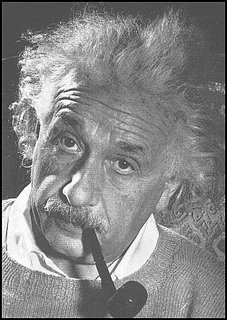Steve Jobs, by Walter Isaacson - My Review
I saw Walter Isaacson on the Charlie Rose Show, and bought the book with reservations since I had previously read his biography of Einstein where I found the author's concern with minutiae annoying and his writing style lack-luster at times. This didn't happen so much with Steve Jobs' Biography.
I recall Isaacson stating rather early in the book that he might be accused of writing something apologetic and perhaps maybe even stand accused of being under the spell of one of the most influential people in contemporary history's 'reality distortion machine.' The biography seemed fair enough, but I think it may have come too early. It is enjoyable and even has some enduring life lessons, but in the end, I think Walter Isaacson soft-peddled more than he needed to.
Consequently, I wonder how much of Jobs' biography is influenced by Walter Isaacson's world view and vice-versa.
Personally, I think Isaacson didn't reveal anything more than what was already floating in the ether about Steve Jobs, the man. Moreover, it seems the juiciest tidbits offered up by the author came in his varied interviews when he was touring the talk shows to hype the book. While my knowledge of Steve Jobs was next to nothing before I read the book, my perspective of him post-Isaacson, is that of a rather emotionally labile, petulant, brilliant man who was given to extremes of self consumption, willfulness that not only attested to his creative genius, but contributed to at least three life-changing disasters - one with the gravest consequences of all for him because it quite likely killed him.
Because only three significant disasters were written of by Issacson, it becomes a matter of reading between the lines. I am left with the feeling that the author purposefully gives his readership bones so that they can sort of build the final character according to their personal likes. To that end, this biography seems a bit skewed. That is why I give this book 3 stars out of a possible 5; it is likeable enough but seems lacking in substance.
I don't know how, or why other people read biographies, but my reasons focus on understanding people and how they influenced their respective worlds. As a result, I tend to look for examples "what-to-do's" and "what-not-to-do's" as I read. While I remain convinced that few if any biographies ever accomplish what they boldly set out to do; convey a complete, unbiased vetting of what makes up a person's life, it seems even harder to summarize a book - even less so, a life - in merely one sentence, but here goes; being bold and determined in your decisions is a double edged razor that has the potential to cut in your favor but it can also cost you your life.
In biographies, sometimes it's not what you say. It's how you say it. Additionally, sometimes it's about what you don't say or perhaps, that you elect not to say it. Finishing up with this book leaves me with those niggling questions. Unfortunately, I don't think I really know much more about Steve Jobs than I did in the past. I do know however, more about the history of Apple, and that was worth paying for.
Perhaps that is what Isaacson should have framed his book as; a history of Apple's rise, fall and rise again - rather than a biography about Steve Jobs. Apple was, after all, what defined Steve Jobs and is, in large part, what will reflect his legacy.
I recall Isaacson stating rather early in the book that he might be accused of writing something apologetic and perhaps maybe even stand accused of being under the spell of one of the most influential people in contemporary history's 'reality distortion machine.' The biography seemed fair enough, but I think it may have come too early. It is enjoyable and even has some enduring life lessons, but in the end, I think Walter Isaacson soft-peddled more than he needed to.
Consequently, I wonder how much of Jobs' biography is influenced by Walter Isaacson's world view and vice-versa.
Personally, I think Isaacson didn't reveal anything more than what was already floating in the ether about Steve Jobs, the man. Moreover, it seems the juiciest tidbits offered up by the author came in his varied interviews when he was touring the talk shows to hype the book. While my knowledge of Steve Jobs was next to nothing before I read the book, my perspective of him post-Isaacson, is that of a rather emotionally labile, petulant, brilliant man who was given to extremes of self consumption, willfulness that not only attested to his creative genius, but contributed to at least three life-changing disasters - one with the gravest consequences of all for him because it quite likely killed him.
Because only three significant disasters were written of by Issacson, it becomes a matter of reading between the lines. I am left with the feeling that the author purposefully gives his readership bones so that they can sort of build the final character according to their personal likes. To that end, this biography seems a bit skewed. That is why I give this book 3 stars out of a possible 5; it is likeable enough but seems lacking in substance.
I don't know how, or why other people read biographies, but my reasons focus on understanding people and how they influenced their respective worlds. As a result, I tend to look for examples "what-to-do's" and "what-not-to-do's" as I read. While I remain convinced that few if any biographies ever accomplish what they boldly set out to do; convey a complete, unbiased vetting of what makes up a person's life, it seems even harder to summarize a book - even less so, a life - in merely one sentence, but here goes; being bold and determined in your decisions is a double edged razor that has the potential to cut in your favor but it can also cost you your life.
In biographies, sometimes it's not what you say. It's how you say it. Additionally, sometimes it's about what you don't say or perhaps, that you elect not to say it. Finishing up with this book leaves me with those niggling questions. Unfortunately, I don't think I really know much more about Steve Jobs than I did in the past. I do know however, more about the history of Apple, and that was worth paying for.
Perhaps that is what Isaacson should have framed his book as; a history of Apple's rise, fall and rise again - rather than a biography about Steve Jobs. Apple was, after all, what defined Steve Jobs and is, in large part, what will reflect his legacy.





